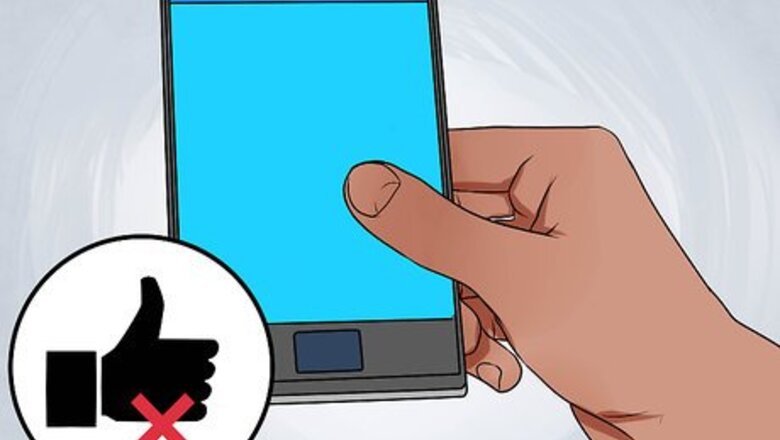
views
Ending a Friendship Without Animosity
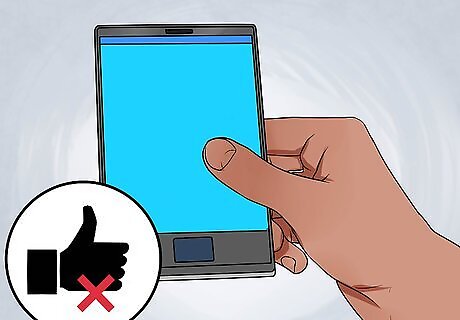
Try winding down contact. Sometimes, you and a friend are simply growing apart. Other times, someone is perfectly nice but you're not clicking at friends. In these situations, try lessening contact over time. The person may get the hint that you're not interested in maintaining the friendship. Avoid answering texts or just reply with some vague like, "Cool." Lessen your contact on social media platforms. Do not like someone's Facebook posts as often, or favorite their Tweets.
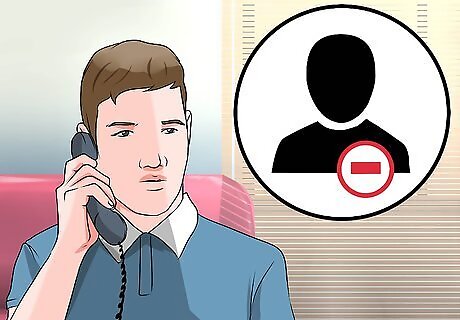
Be vague about plans. If you don't want to outright tell someone you don't want to see them again, work on being vague. If a friend contacts you asking about plans, make excuses. You can say things like, "I'm really busy right now" or "I would love to, but I'm so bogged down with work. Maybe another time." Over time, the person may realize you're simply not interested in prioritizing the friendship.
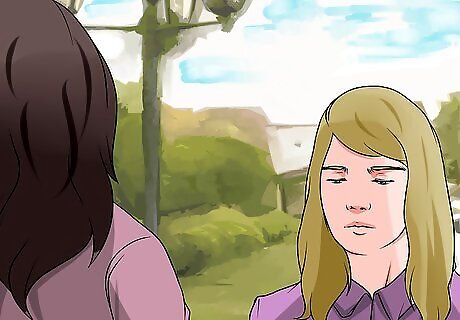
Consider discussing things up front. Gradually lessening contact can work with a casual friend or acquaintance. If you're growing apart with a friend who was once close, it can be cathartic to discuss things up front. Your friend probably also realizes your relationship has dwindled, and it could be good for both of you to get closure. The conversation does not have to be an angry one. If the two of you are growing apart, your friend is probably aware of the situation as well. Meet to talk at a neutral location. You can both simply acknowledge your relationship is no longer what it used to be. Keep in mind, friendships can always be reignited later. This does not have to be goodbye forever. Maybe circumstances will change down the road and you and your friend will find yourselves close again.
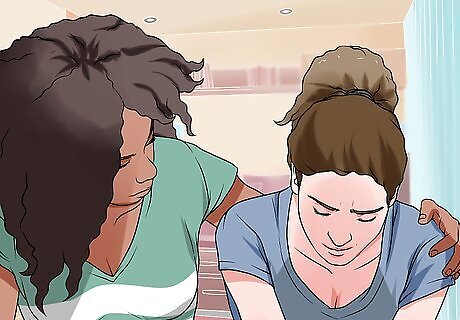
Have gratitude for the time you had together. It can be sad when a friendship ends, even if it's not due to any animosity. Try to have gratitude for the time you had. Remember, many friendships and relationships do not last forever. Just because a friend is no longer present in your life does not mean that friend did not help you grow and change as a person.
Ending a Bad Relationship
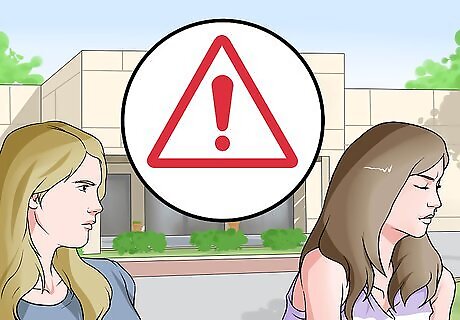
Recognize the signs of a toxic relationship. With a toxic relationship, it's often necessary to be upfront. A toxic person may be controlling or angry, and may not easily take hints. Watch for signs you are in a toxic relationship with your friend. Are you giving more to the relationship than you're putting in? Do you feel drained when spending time with this person? Does this person engage in the same troublesome behaviors repetitively? Do you feel obligated to spend time with this person due to feelings of pity? Is the friend always putting you down and making you feel bad? These are all signs of a toxic relationship. It's best to be direct when ending one.
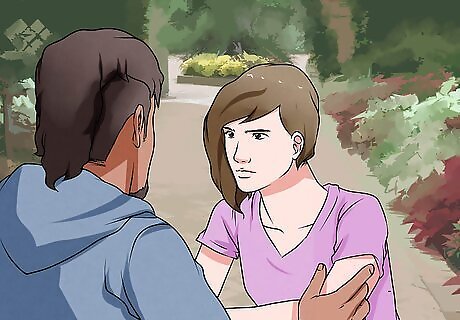
Decide how to talk to the friend. You can talk to the friend face to face. This may give you closure, and allow you to have a chance to express how your friend hurt you. However, if your friend is the type to become hostile, it may be best to send a text or email. A face to face talk ends the relationship cleanly and gives your friend a chance to respond and ask questions. You also may feel closure if you get to explain to your friend how he or she hurt you. However, the confrontation can be awkward. If your friend tends to get hostile, you may want to avoid a face to face discussion. Sending your friend an email or text explaining why the relationship is ending may be easier.
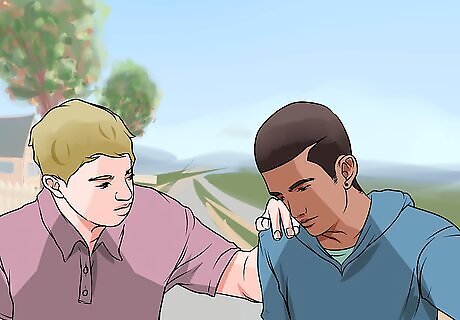
Be upfront about ending the friendship. However you decide to do it, try to be upfront. If your friend did something to hurt you, or has been hurting you over time, you should tell him or her about it. This is good for your own emotional health, and gives your friend a chance to grow in the future.
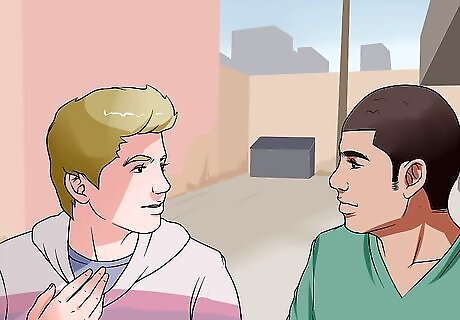
Use "I"-statements. Meet with your friend in a neutral location, like a quiet coffee shop, to have the conversation. As you converse, use "I"-statements. These are statements phrased in a way that emphasizes personal feelings over objective judgment. A person may feel less judged being on the receiving end of an "I"-statement. An "I"-statement has three parts. It begins with "I feel..." after which you immediately state your emotion. Then, you state the action that led to that emotion. Finally, you explain why you felt the way you did. For example, you may be inclined to say, "I don't want to be friends with you because you tell me my problems aren't as important as yours." This can be rephrased using an "I"-statement. For example, "I feel hurt when you tell me my problems aren't important in comparison to yours because it makes me feel uncared for."
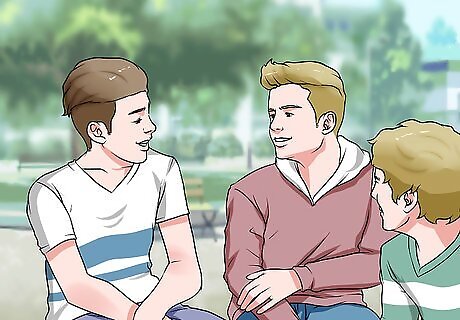
Surround yourself with positive friends. After breaking things off with a toxic fiend, try to interact with more positive people. It's important to remember how you deserve to be treated. Reach out to friends and family members who have always been kind, loving, and supportive to you.
Stay firm. You ended this relationship because it wasn't good for you, so don't give in to your friend's attempts to re-establish the friendship. If your former friend keeps trying to talk to you, reiterate your boundaries, then cease communication. If you respond to your friend's texts regularly, you'll send them mixed messages. For example, you could send them a text saying, “I don't want to be friends anymore because you didn't treat me well. Please stop texting me, because I won't respond.” If you are having trouble remaining firm, it might be helpful to think about why you ended the friendship.
Coping After the Loss of a Friendship
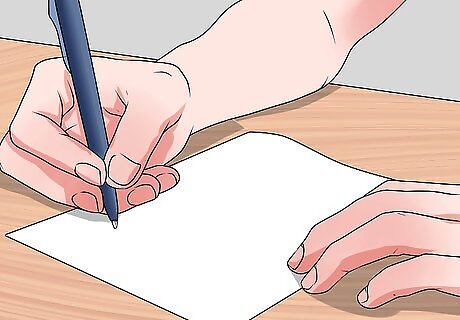
Write a goodbye letter. This is not a letter you intend to send. It's only a way to purge your feelings. A symbolic goodbye can help you move on after a friendship has ended. Express your feelings. Are you sad the friendship ended? Are you grateful for the time you spent together? Will you miss the friend? This is a good way to get to hear yourself saying goodbye. It can help with closure.
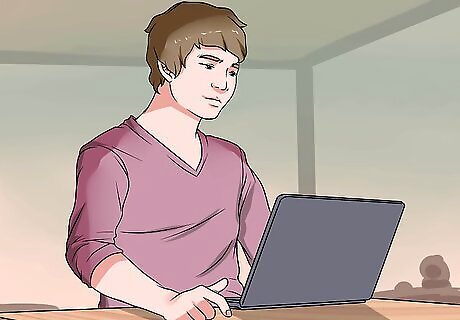
Address your feelings. You may need to feel sad after losing a friend. It's okay to cry or be angry. If you're having trouble getting in touch with your feelings, find ways to bring them out. Look at old photos of you and your friend. Browse old Facebook posts and albums. Go to places you and your friend enjoyed. Watch a movie that was personally meaningful to the two of you.
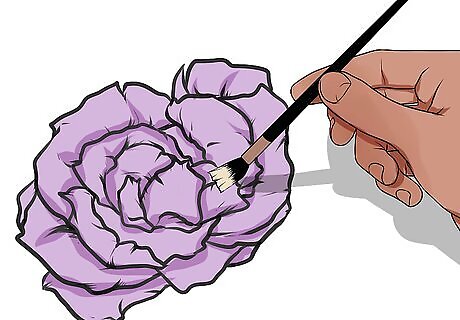
Take up a hobby. This can help fill the void left by a lost friend. Try taking up knitting, joining a club, or starting to paint. If you have time, think about volunteering somewhere. This can help occupy your mind and also help you feel like you're helping people.
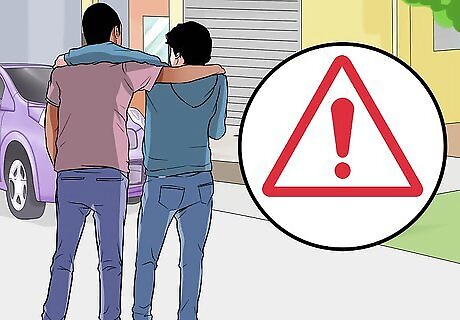
Be more careful picking friends in the future. If you broke things off with a toxic friend, see this as a learning experience. In the future, be more conscientious about the friendships you choose. Think about any warning signs you noticed. Was this person always prone to talking about his or herself? Were they always kind of mean to you? Now that you've had a relationship with a toxic person, you'll be able to make better relationship choices.

















Comments
0 comment